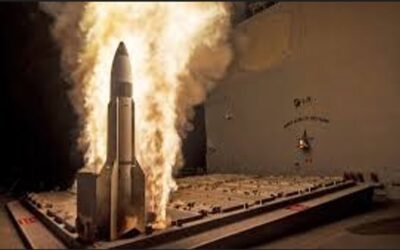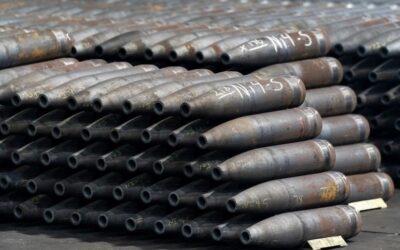The recent presentation of the start-up company Lambda Automata at the “Investing in Deep Tech: Dual-Use Technologies” conference…

The Turkish government has officially launched a competition for the local development of a turbofan engine that will power the country’s national fighter jet in the making, the TF-X.
Turkey’s defence procurement agency (SSB) issued a request for proposals (RFP) in June, inviting potential bidders for the program. The SSB said two Turkish engine makers, Tusas Engine Industries and TRMotor, have replied to the RFP.
The agency’s chief and the government’s top procurement official, Ismail Demir, told the media that TAEC, a partnership between British engine-maker Rolls-Royce and Turkish industrial conglomerate Kale Group, would soon compete in the said tender, making it a three-way competition. Kale owns 51% of TAEC.
Demir said the government’s sine qua nons (essential requirements) are:
- Production of the planned engine in Turkey.
- Intellectual property rights owned by Turkey.
- No export license restrictions.
- Cost-effectiveness.
Also read: State Department | The current contracts with the Turkish Defence Industry will not be renewed
Demir said TAEC’s offering met all criteria but one: intellectual property rights owned by Turkey. “In case we do not agree on a deal with Rolls-Royce, Turkey will move ahead with its indigenous capabilities [to develop the engine],” he stated.
One of the two local bidders, Tusas Engine Industries, is a state-owned company based in Eskişehir, northwestern Turkey, which was founded in 1985 as a joint venture involving GE Aviation, Turkish Aerospace Industries, the Turkish Armed Forces Foundation and the Turkish Aeronautical Association.
The other local bidder, TRMotor, was founded in 2017 by SSTEK, a subsidiary of the procurement agency SSB. Tusas, which is the parent company of TEI and Turkish Aerospace Industries, wholly owns TRMotor.
SSB plans to build TF-X prototypes using the American-made F110 engine.
Yet a senior industry official and engine expert said powering the TF-X with the F110 may prove difficult. “Serial production may require vast amounts of investment and testing time. In addition, this option would come with the same export license and intellectual property right problems the Turks find in the Rolls-Royce solution,” the official told the media on condition of anonymity.
Also read: Turkey | Invites bids for construction of three new class “I” frigates
The British proposal
Demir also said BAE Systems has made a new proposal to Turkey about the TF-X program. “The new proposal is about the second phase of the [TF-X] program. We will respond after checking if that proposal for technical support fits our requirements,” Demir said. The TF-X’s second phase is about finishing the preliminary conceptual design.
According to DefenseNews, Top British manufacturers like BAE Systems and Rolls-Royce are no strangers to the TF-X program. In October 2016, Rolls-Royce offered a joint production partnership to Turkey with a view to powering planned Turkish platforms and potential sales to third parties. The company’s proposal involved a production unit in Turkey to manufacture engines for the TF-X as well as for helicopters, tanks, and missiles.
In January 2017, BAE Systems and TAI signed a deal worth more than £100 million (US $120 million) to develop the Turkish fighter jet. “We work with Turkish Aerospace to bring know-how and engineering expertise to the TF-X program,” BAE tweeted on February 15, 2022.
The TF-X is scheduled to make its maiden flight in 2026, while it will enter service in 2029, according to Turkish officials.
Also read: USA | F-16 sale ban in Turkey – Konstantinos Floros inspects F-35s in Texas – Photos
READ MORE
VELOS ROTORS | Velos V3 UAS introduced as ideal example of dual-use systems
The “Investing in Deep Tech: Dual-Use Technologies” conference held at the Hellenic Armed Forces Officers’ Club in…
US Navy | First combat use of SM-3 Missiles
In a historic first, US Navy Arleigh Burke-class destroyers deployed Standard Missile-3 (SM-3) anti-missile interceptors in combat…
SIPRI | New record in global military spending
In 2023, global military spending set a new record for the ninth consecutive year, according to research by SIPRI, the Stockholm-based…
Iraq – Turkey | Sign more than 20 agreements
Turkish President, Recep Tayyip Erdogan, met with his Iraqi counterpart, Abdul Latif Rashid, in Baghdad on the occasion of his official…
Lambda (λ) Automata | Autonomous surveillance solutions at “Investing in Deep Tech: Dual-Use Technologies” conference
The recent presentation of the start-up company Lambda Automata at the “Investing in Deep Tech: Dual-Use Technologies” conference…
VELOS ROTORS | Velos V3 UAS introduced as ideal example of dual-use systems
The “Investing in Deep Tech: Dual-Use Technologies” conference held at the Hellenic Armed Forces Officers’ Club in…
OCCAR | Additional Night Vision Goggles
The Director of the Organisation for Joint Armament Cooperation (OCCAR), Mr. Joachim Sucker, has signed a third amendment to…
Iraq | Εxplosion at military base south of Baghdad
A major explosion at a command post of the Iraqi Army took place today Saturday about 50 kilometers south of Baghdad…




















